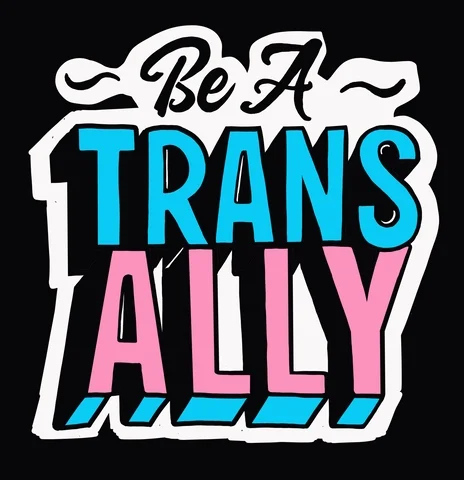It was such a pleasure having Anna as an intern! They have a great attention to detail that is incredibly helpful.
Although I knew my workplace was proud of their LGBTQ+ inclusion, reading "they", my pronoun, in my supervisor's review still filled me with a feeling of comfort and relief.

Many non-binary and transgender employees, however, don't come out at work. In France, only 19% are out at work, and in the US and UK, only 29%.
By practicing active allyship in the workplace, you open your organization up to the possibility of increased productivity, employee engagement, and retention.
And, if you're transgender or nonbinary yourself, knowing how to navigate coming out will help you feel more comfortable and confident being your authentic self in your workplace.
Use someone's correct name, pronouns, titles, and adjectives
When someone comes out to you as transgender or non-binary, they may ask you to refer to them by a new name, with different pronouns, or as a different gender. Referring to someone correctly is a way to show respect, and it also helps them feel safe and comfortable in the workplace.
Looks like 👀
Options for preferred/personal name on documents, not just legal name
Company surveys include more than just male/female options, offering titles like Mx. and collecting (optional) pronoun information
Employees including pronouns in email signature (if comfortable)

Sounds like 🗣️

Talking about someone with their preferred language, regardless of whether they're in the room or if you like them
Avoid terms of politeness like Miss, Sir, and Ma'am for people you don't know
Instead of gendered group names like men and ladies, use terms like everyone, folks, all, or distinguished guests
Quiz
Which of the following demonstrate using non-gendered language? Select all that apply:
Include gender identity and/or expression in policies
Transgender and non-binary employees (or potential hires) may want to know the company's policies to decide whether or not to come out. By providing information about healthcare, gender transition, and protections from bullying and harassment, they'll learn not only about your organization's values, but what might happen if they do come out.
Looks like 👀
Providing a transgender-inclusive insurance policy, with coverage for aspects of gender-reassignment including therapy, HRT, and surgeries
Documentation of equal opportunities for employment and non-discrimination
Outlining supports and expectations for transitioning employees

Sounds like🗣
Non-binary and transgender people mentioned clearly in trainings about policies, including definitions and scenarios
Leadership and management professional development with an emphasis on diversity and cultural competence

Maintaining confidentiality of transgender identity, legal name, any gender reassignment, or any other personal or medical details
Quiz
What company policies should specifically acknowledge transgender/non-binary employees? Select all that apply:
Create an inclusive workplace
Coming out as transgender or non-binary can be stressful, as employees worry about what their coworkers might say, what spaces they'll be allowed to use, and whether it will affect their relationships in the workplace.

Working in an inclusive workplace, on the other hand, can create a feeling of belonging and allow transgender and non-binary employees to be authentically and confidently themselves at work, motivating them to stay at the organization, be involved, and form meaningful relationships as their true selves.
Looks like 👀
Adopting gender-neutral and/or trans-inclusive dress codes and bathrooms
Displaying transgender pride flags and observing Transgender Day of Visibility, Transgender Awareness Week and Pride Month

Educating yourself and identifying bias
Sounds like 🗣️
Calling out transphobic remarks and other bullying specifically aimed towards gender identity, gender expression, or someone's transgender/non-binary status

Quickly and calmly correcting yourself when you make a mistake
LGBTQ+ specific employee resource groups and diversity councils
Learning from transgender and nonbinary employees about their lived experiences
If you're thinking of coming out as transgender or non-binary at work...

You don't have to come out to everyone at the same time, or ever, and you can do so face-to-face, over email, or whatever way is comfortable
Check your organization's website for policies and inclusive language
If you want to medically transition, consult any insurance policies and discuss any needed time off
You don't need to reply to all questions, or apologize/respond if someone is transphobic, misgenders you, or refers to you by a name you used before transitioning ("deadnaming")
Consider joining, or starting, an LGBTQ+ resource group
Quiz
Do transgender and non-binary employees need to disclose their gender identity?
Take Action
For transgender and nonbinary employees, coming out in the workplace can lead to increased feelings of authenticity, confidence, freedom, and higher self-esteem.
Since coming out at work, I feel more like myself. I'm proud to advocate for gender inclusivity in my organization's programming, and I even volunteered at the local Pride parade!

Your feedback matters to us.
This Byte helped me better understand the topic.
